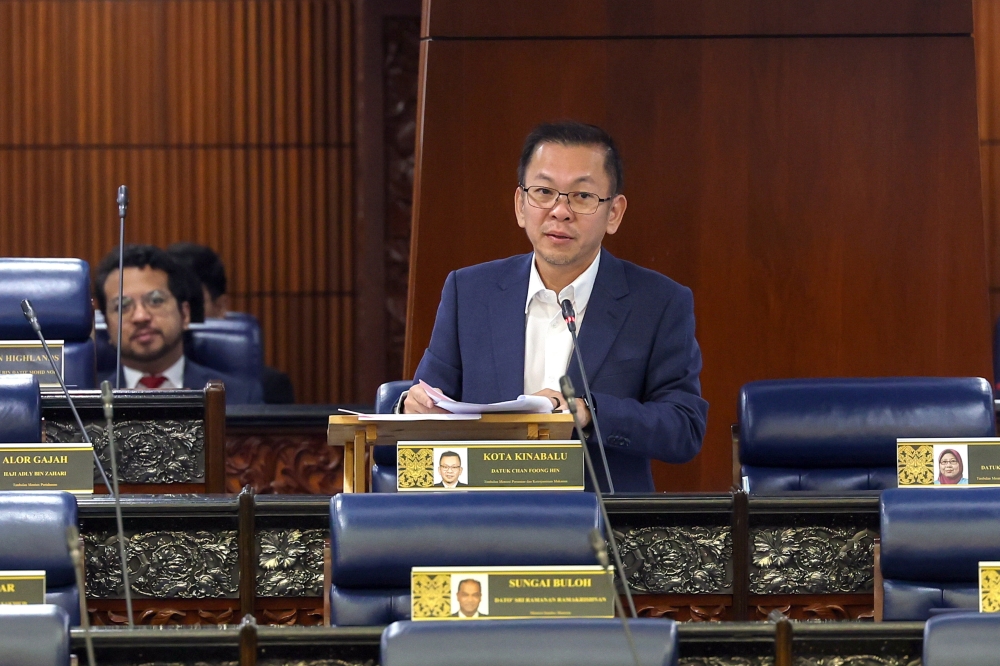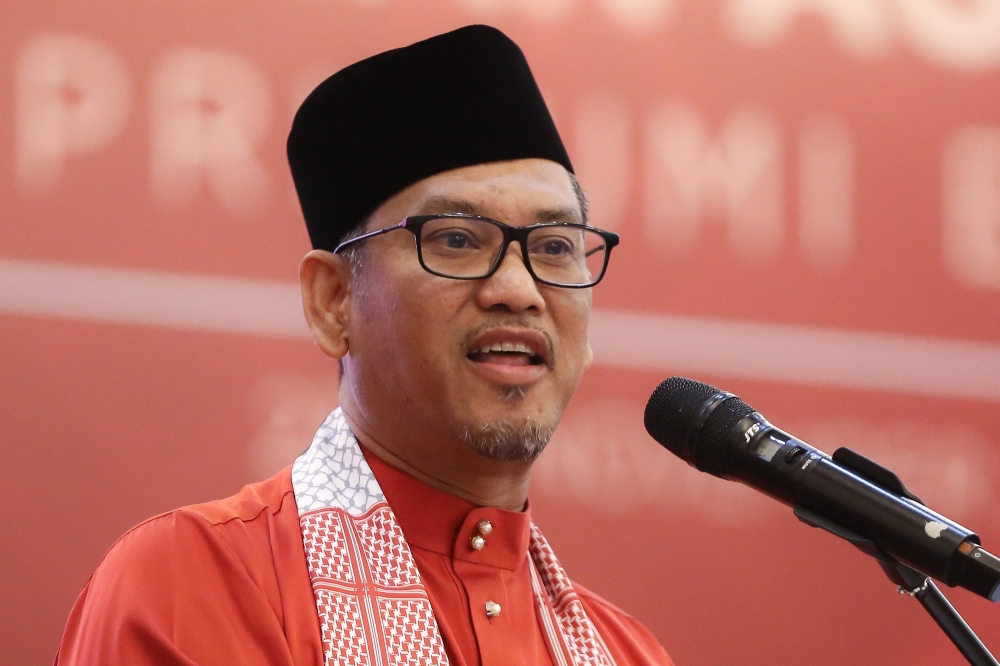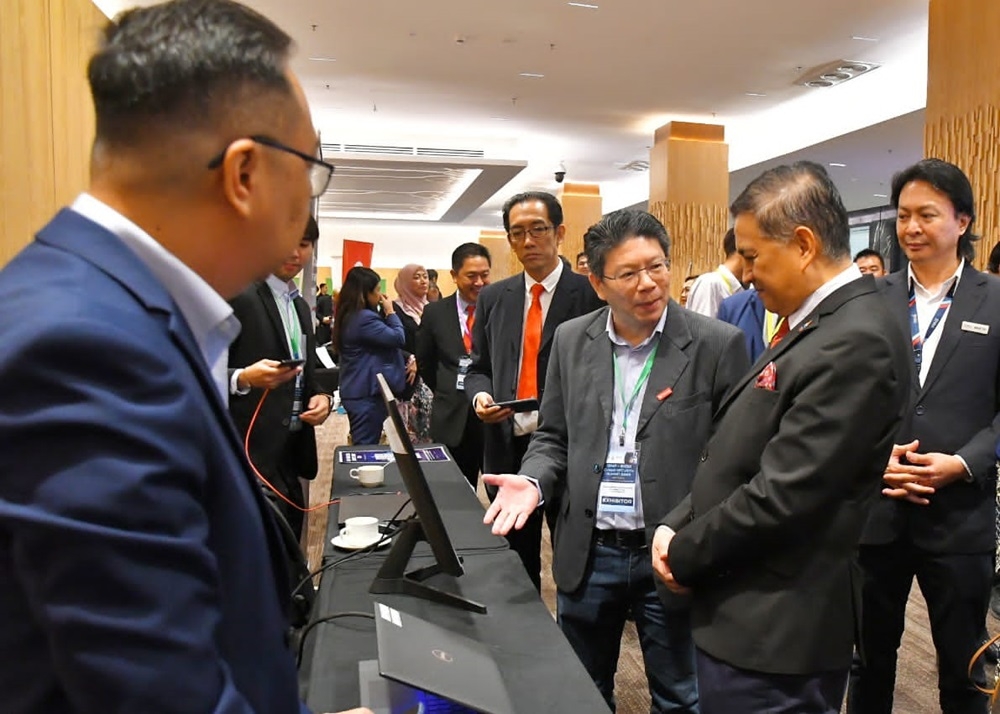KOTA KINABALU, Nov 8 — A total of 4,687 online fraud cases with losses of more than RM100 million were reported in Sabah in the last three years.
And as of September this year, 1,243 cases of online fraud were reported with the victims losing RM28 million, the highest losses recorded in the history of the state, said Science, Technology and Innovation Minister Datuk Mohd Arifin Arif.
“This clearly indicates that cybersecurity deserves serious attention and requires appropriate action by all segments of society, including public servants who are the implementers of the state’s top leaders aspirations,” he stressed.
“Although losses in Sabah are still small compared to the national total, we need to take early and proactive measures to minimize risks and control any cybersecurity incidents from spreading and escalating to the point of being difficult to manage,” he said when opening the BIMP-EAGA Cyber Security Summit 2023, here yesterday.
In his speech Mohd Arifin said that the challenges and risks of Artificial Intelligence (AI) on cybersecurity have risen significantly.
He said that the AI chatbot, known as ChatGPT, is considered a game-changer in the field of AI due to its ability to generate high-quality text that is contextually relevant, making it highly versatile and capable of handling various tasks related to natural language understanding and generation
On the flip side, Mohd Arifin pointed out the very same capabilities can be misused to influence users, spread false information, craft and develop malicious source code, launch cyberattacks, or engage in other harmful activities.
Furthermore, similar generative AI models have emerged, created by cybercriminals, such as FraudGPT and WormGPT, which are alleged to have the capability to develop malicious software, identify application vulnerabilities, targeting victims, and crafting fake emails, he lamented.
“On November 1, 28 countries, including the United States, China, India, the United Kingdom, Japan, and the European Union, signed the Bletchley Declaration, the first international declaration on AI, where they acknowledged the potential catastrophic risks that AI could pose to humanity.
“It is against this backdrop that this conference is held with the chosen theme, urging all of us to prepare ourselves, our organisations, and our surroundings to face these highly challenging issues,” he said.
According to Mohd Arifin, the state government has implemented various initiatives and programmes to strengthen cybersecurity aspects to support its service delivery.
This includes the establishment of a dedicated section to manage the cybersecurity ecosystem, at the State Computer Services Department (JPKN) in 2010, with the support of Sabah Net, the state government-owned ICT company.
The state government, he said, has placed special emphasis on online fraud issues since 2022 through a series of cybercrime awareness programmes among public servants.
To date, six programmes have been implemented in Keningau, Sandakan, Tawau, and Kota Kinabalu, reaching around 700 public servants, Mohd Arifin said, adding that there are also plans to expand these efforts to the general public through collaborations with strategic partners.
This year, the state government has carried out 14 training and awareness programmes related to cybersecurity, including the conference on Tuesday, he said.
The Federal Government, he said, has also demonstrated due attention to cybersecurity issues through financial commitments and among the measures that were announced in the national 2024 budget were accelerating the implementation of National Digital Identity (NDI) to combat the risks of online scams, increasing allocation for the National Scam Response Centre (NSRC) to combat scam crimes and examining the requirement to amend relevant laws to expedite the process of returning funds to scam victims.
“The combined efforts of the State and Federal Governments, clearly demonstrate the government’s commitment to addressing all cybersecurity needs in the country,” he said and stressed that public servants must continue to play their role in ensuring comprehensive and secure implementation of the digital government delivery system. Therefore, all public servants should proactively and swiftly acquire digital knowledge and skills.
“Collaborate with the Ministry of Science, Technology, and Innovation in continuous engagement and cooperation on this matter, in line with the roles of its sub-agencies, JPKN and SabahNet, as implementers of a secure cyber ecosystem,” he added.
Mohd Arifin also reminded all about the need to regularly update the list of ICT Security Officers, or ICTSOs, in their organisations and subsequently inform the National Cyber Security Agency (NACSA) and JPKN, as required by the Director-General of National Security, National Security Council.
This step is essential, as it will facilitate organisational communication with NACSA on current cybersecurity issues, he stressed. — Borneo Post Online



















